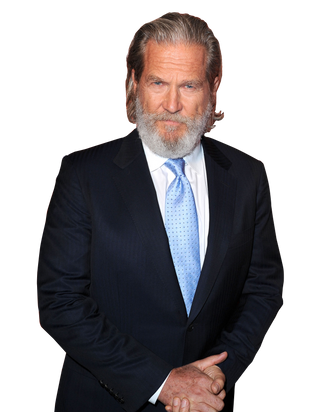
There’s a certain side of Jeff Bridges we don’t see much anymore. Since his back-to-back Oscar nominations for 2009’s Crazy Heart, which won him Best Actor, and the Coen Brothers’$2 2010 True Grit, he’s made only three films, all big-budget blockbusters: R.I.P.D., The Giver, and Seventh Son. But this weekend, his great indie Hell or High Water, in which he co-stars with Chris Pine and Ben Foster, brings back a welcome version of Bridges: the smart-aleck lawman. Vulture jumped on the phone with Bridges to talk about the state of contemporary filmmaking, the moral ambiguity of law enforcement, and that time he made a painting to reflect how hard he tries to avoid taking a role.
One of the most impressive aspects of Hell or High Water is that it’s such a gutsy, visceral crime movie. You don’t see many films like that anymore. Do you feel like it’s kind of a throwback?
It did remind me of some of the movies I made in the ’70s and ’80s — it has that sort of authenticity. It seemed like it was being told by somebody who really knew what he was talking about, who could shine some good light on these folks. When a story is told really well and is real, even if it’s not about their own lives, people can apply it to themselves.
Any thoughts on why more movies like this aren’t getting made these days?
Well, Sicario was like it, and that’s another one written by [Hell or High Water screenwriter] Taylor [Sheridan]. He’s kind of on a roll now, and he’s been writing some more. There are movies like this being made — I just hung out last night with my buddy Scott Cooper who directed Crazy Heart, and that was kind of a similar movie. I think maybe the pendulum’s swinging.
Your character, Marcus, is, similarly, a sort of throwback lawman: He’s gruff and obnoxious to his partner, but there’s also something pure and consistent about him. In playing that part, what did you want to convey about him?
The starting place is the script; that points you in the direction of who this guy is. Then, as an actor, I look at aspects of myself that parallel the character, and then I look for role models. The whole company was very blessed to have Joaquin Jackson, who was one of the most badass Texas Rangers around, be on the set with us. We became friends and I got to know him pretty well, and I drew on him in terms of attitude and how to wear my clothes and all that stuff.
As a society, we’re not in a great place right now with the relationship between police and the general public. Did playing this classic version of a lawman give you any thoughts on that strained relationship?
One of the things that appealed to me about the script and the story is that it’s chock-full of ambiguity. It really questions what is right, which is not as simple as it seems. The line between good and bad gets blurred, and who should be punished for what. This is a story about bank robbers, and it’s bad to rob people, but you have to think about what the banks are doing. Is it a good thing for the banks to loan people that they know can’t pay back? That’s something the movie explores, and I think that idea is not lost on Marcus. He has some compassion for Chris Pine’s character — he can understand why he did what he did, and I think he’s got some mixed emotions about it. But he’s a lawman, and his part of this thing is to bring this guy in.
You’ve done a lot in your career. What, going forward, do you look for in roles? What’s the biggest factor in deciding to play a part?
I consider myself more of a counterpuncher. I really try my best not to get attached to a script, because I know what it takes: It takes you away from your family and what you like to do. When you take on a movie, there’s a whole mess of movies that you can’t do. So I do my best to resist, which is kind of a funny tactic, but that’s just how I roll.
An old story comes to mind: I had a dream once, and I made a painting about it. The dream was that I’m rowing in a boat down this big, wide river, and it’s got steep cliffs on either side. My task is to row down this river and avoid these huge whirlpools that are all over this river. And at the vortex of each of these whirlpools is a beautiful jewel. They’re kind of mesmerizing, and I’ll be going down the river and I’ll see a jewel at the bottom of this whirlpool, and I’ll start to get drawn into the whirlpool, but then I’ll catch myself. And then I’ll be going down the river, and I’ll see another one, and I’ll go, Oh-oh-oh, I’m really stuck now.
That’s the painting I painted. The title is Jeff Makes a Decision. I try my hardest not to get sucked in, but when it’s too cool, when it’s too beautiful, somehow, that’s what I end up doing. That’s the jewel I look for.

